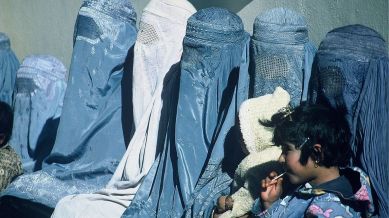5 must-read books by Afghan women writers
Despite new directives in Afghan universities, women’s voices remain visible through literature that continues to reach readers worldwide.a

Afghanistan’s universities are undergoing a major shift. Recent directives from the Taliban-led Ministry of Higher Education have instructed faculty to remove books authored by Afghan women from curricula and discontinue courses such as human rights and women’s sociology. The changes follow earlier restrictions on women’s education and public life.
While these measures reshape academic life inside Afghanistan, women’s literary contributions continue to circulate globally. Over the past several decades, Afghan women have published works of fiction, memoir, poetry, and legal scholarship that provide insight into the country’s social, cultural, and political landscape. Many were written in exile, others were created within Afghanistan itself, often under difficult circumstances.
monthly limit of free stories.
with an Express account.
Here are 5 works that illustrate the range of Afghan women’s writing:
1. My Dear Kabul: A Year in the Life of an Afghan Women’s Writing Group
This book began as a WhatsApp group chat among 21 Afghan women writers in 2021, during the days following the Taliban’s return to power. Fearing searches and surveillance, participants deleted their messages from their phones after sharing, while volunteers abroad preserved them. Over the course of a year, these fragments formed a 70,000-word collective diary, an intimate record of everyday life under sudden restrictions. The voices range from young teachers to grandmothers, each capturing the mix of fear, humour, and resilience in Kabul’s streets and homes. It is as much testimony as literature, bearing witness to an historic turning point.
2. My Pen Is the Wing of a Bird
Published in 2022, My Pen Is the Wing of a Bird is an anthology of short fiction by Afghan women. The book brings together 18 writers working in both Dari and Pashto, developed through the Untold “Write Afghanistan” project over two years. The stories span everyday themes such as childhood, family life, friendship, as well as more charged experiences of war, identity, and social change. Together, they reveal a vibrant literary culture that persists even amid conflict. With an introduction by BBC correspondent Lyse Doucet, the collection positions Afghan women not only as witnesses but as storytellers of universal human experiences.
3. The Short Stories of Maryam Mahboob
Maryam Mahboob, born in 1955, is one of Afghanistan’s most prolific and influential short story writers. Her work emerged during the rise of leftist literature in the 1960s and 70s, and she has continued to publish throughout her life in exile. Mahboob’s stories explore women’s lives in Afghanistan under patriarchy, tradition, and political conflict. Her characters resist in diverse ways, through small gestures, family relationships, or direct confrontation, making her fiction a nuanced record of both oppression and rebellion. She often wrote about Afghan women in diaspora as well, capturing the traumas and realities of displacement.
4. Fevziye Rahgozar Barlas — Wonderland and The Heavens Are My Father
Fevziye Rahgozar Barlas, born in Balkh in 1955, is a poet and short story writer who left Afghanistan in 1979 and built much of her career in exile. She later worked as a journalist and editor for Radio Free Europe. Her published works include Dayer-e Shegeftiha (Wonderland), The Heavens Are My Father, and Wondering Eyes. Across genres, her writing blends lyrical imagery with reflections on displacement, exile, and the persistence of cultural memory. Barlas’s work demonstrates how Afghan women have continued to create literature even when removed from their homeland, showing the adaptability of Afghan identity across geographies.
5. The legal writings of Zakia Adeli
Zakia Adeli, a former deputy justice minister in Afghanistan, has authored works on law and society with a focus on women’s rights. Her writings examine how legal systems shape — and often constrain — women’s lives in Afghanistan. They also point to potential reforms rooted in both Afghan traditions and broader international frameworks. Adeli’s scholarship bridges law and literature, providing readers with detailed, contextual insight into Afghan governance and its gendered impacts. Her work illustrates how Afghan women have participated not only in cultural production but also in the intellectual and legal life of the country.
In addition to published works, Afghan women have preserved their voices through oral traditions. Lullabies, folktales, and personal testimonies passed down within families continue to serve as cultural archives. In recent decades, Afghan women in exile have documented their migration stories, often in memoirs or anthologies. These narratives broaden the record of Afghan women’s experiences, connecting generations and bridging continents. While universities in Afghanistan may be instructed to omit women’s texts, oral and diaspora traditions ensure their stories remain in circulation, shaping both Afghan memory and global literature.